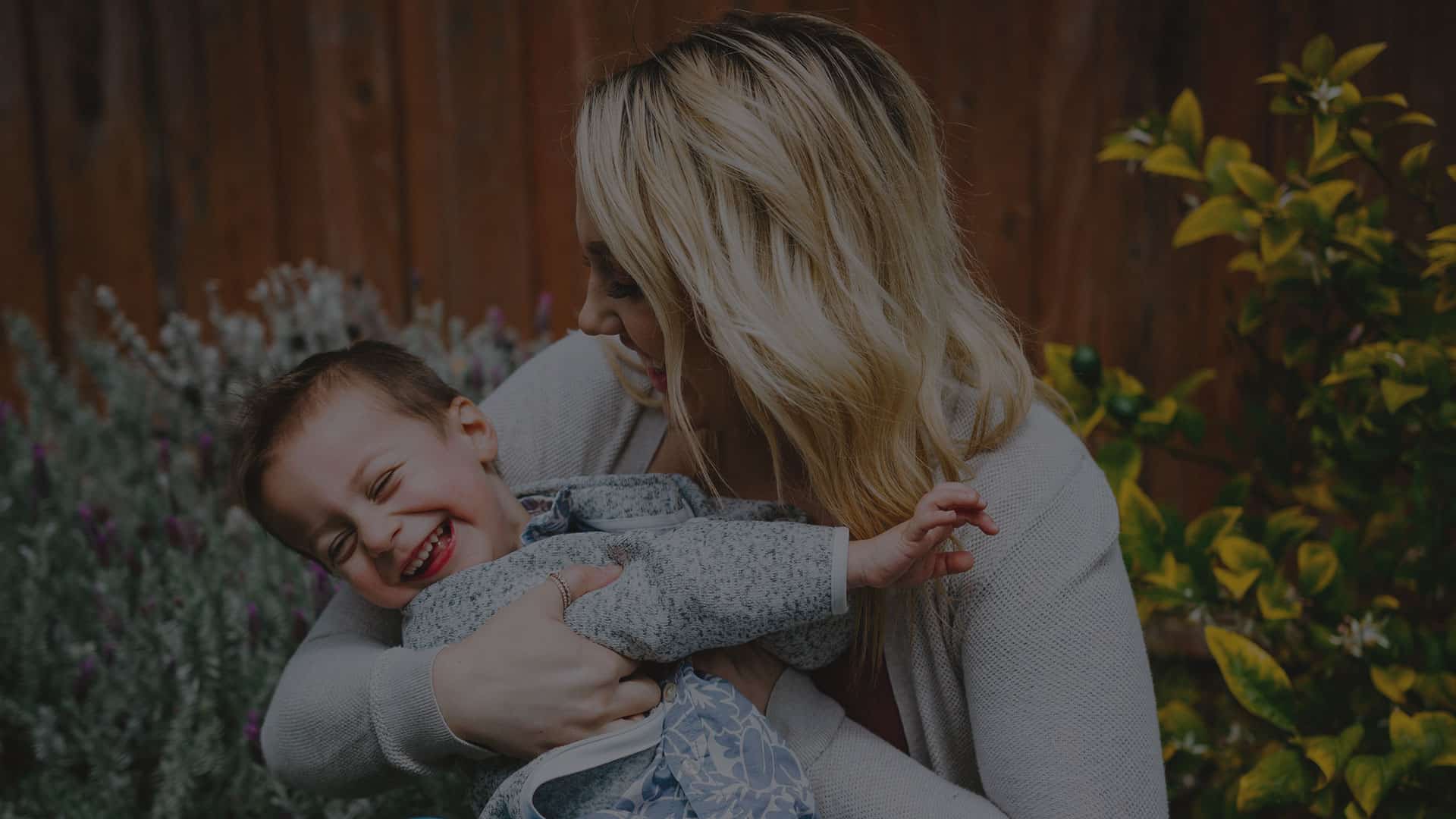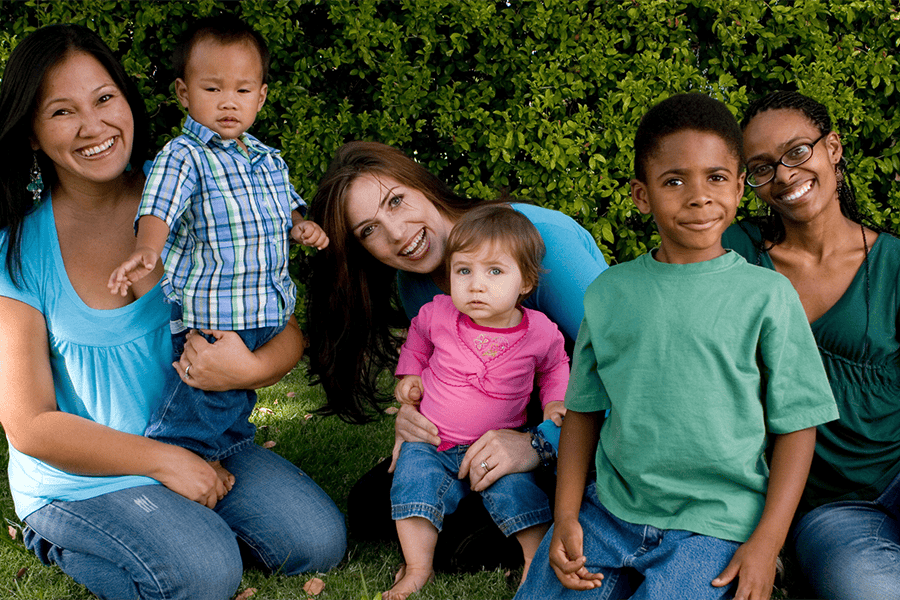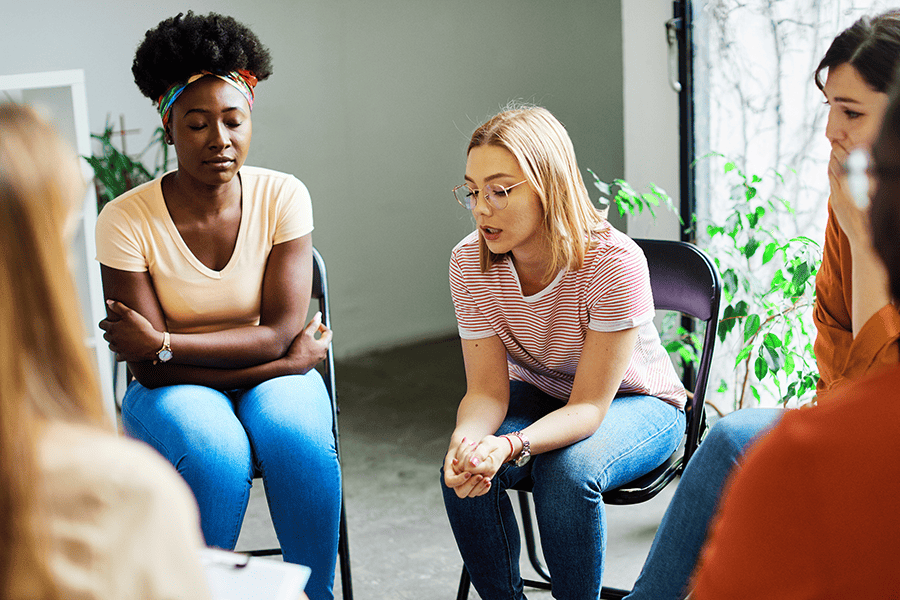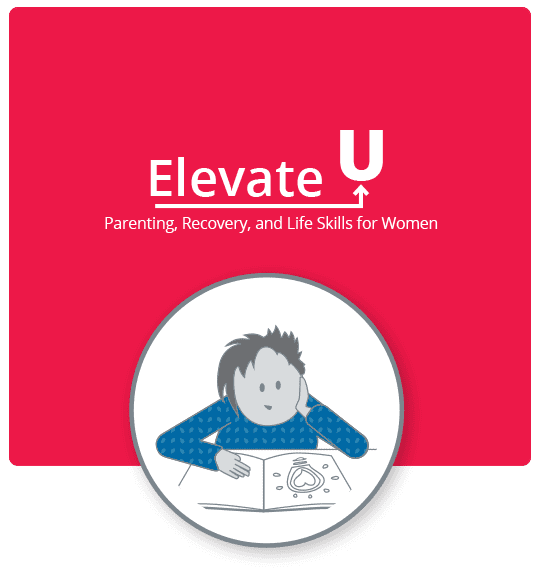
Moms Matter®
Encouraging moms to reach their reunification goals
262,000 children from roughly 100,000 parents enter the U.S. foster care system each year. About half of these parents will get their children back.
Having a child removed and placed in foster care is a devastating and traumatic loss for parents – one that often leaves a lifelong impact on each family member. While children often desire to go back home, each parent is given a court-ordered treatment plan to complete before reunification can take place.

reunification national average
reunification in Moms Matter®
They can’t do it alone,
Some parents are able to do what it takes to welcome their children back – but not alone. That’s where we come in. We meet moms in their pain, through a peer to peer approach, providing training and support. Moms Matter® helps moms cope with their loss, build essential life skills, and break down their treatment plan goals into small and manageable tasks.
A safe environment for inner healing
Most moms feel devastated, overwhelmed, and broken when their children are taken from them and put into foster care. They often shame themselves for their mistakes and the pain that they have caused their children. Our trained facilitators welcome them into an open, honest, and safe environment to be themselves.
Many battle addiction, poverty, and lack of education. As weekly support group meetings take place, moms begin to rebuild their self-esteem and find hope in taking small steps toward their goals. Week by week, moms grow in courage and find inner healing.
As moms progress through their treatment plans, they also find support from other moms who understand what they’re going through. Group discussions begin with acceptance and humility. From there, they move to becoming a stronger parent for their children and preparing for reunification. Our certified Peer Support Specialists provide consistent expectations and accountability as willing moms make progress and find success.
How can we help you connect?

Moms Matter®
Our weekly support group is free.
A trained facilitator helps moms to:
Real World
A community of support for life after reunification.

Our Real World group helps Moms thrive in life after reunification. Weekly meetings are led by speakers and moms.
We talk about:
- Parenting
- Schooling
- Careers or starting a business
- Relationships and blended families
- and much more!
Real World meets online anywhere you are. Join our community on Monday evenings at 6:00 pm.
Click the button below to email Dena and sign up!
Shelter Group
Support for women when parental rights are terminated.

When parental rights are terminated, parents enter into shock. The pain is intense. Some parents get angry, others depressed, some stay in denial. Some go into a cycle of starting a new family, never adequately grieving their current loss.
Shelter Group provides healing for women when parental rights are terminated. Together, women identify traumas and how they affect all areas of behavior and relationships. Shelter Group restores hope to each mom at an intense moment of pain.
Shelter Group is a trauma-informed group therapy offered to women who have experienced termination of parental rights.
Elevate U
A 13-week certified course for Moms.

Elevate U is a 13-week in-person, certified curriculum for Moms to work on parenting, life skills, and recovery.
The Elevate U class has been recognized by case workers as an approved parenting class for Moms involved in the Social Services system. This class is relevant for any woman dealing with addiction, trauma, or just working on major lifestyle changes. Participants will dive deeply into social and legal systems and learn how to navigate them successfully.
Currently, this course is only offered in treatment or recovery-based facilities in Upstate, SC. If you know of a facility interested in this curriculum, please click the button below.
Online Community
Virtual Community for Moms
When a child is removed from the home, parents don’t know where to go or what to do. It can be an isolating journey filled with grief, pain, heartbreak, and self-shaming. Parents in isolation can quickly spiral emotionally and lose hope. That’s why we’ve created a community for moms to connect with each other.
Our Moms Matter Facebook community is a private group. This safe space is for moms who have social service involvement to share ideas, resources, and encouragement with one another. Moms who have successfully reunified with their children serve as leaders within the community, facilitating positive dialogue with moms who are at risk for or have recently lost custody of their children to foster care.
Make a Referral.
Once a referral is received, our team will reach out to the mom and invite her into the program. We can't wait to meet you!
Moms Matter® Support Group
Anyone can submit a Moms Matter referral — this includes moms, case workers, CASA/GALs, attorneys, treatment facility staff, health assessment center staff, foster parents, family members, friends, and mentors.
Real World Support Group
Anyone can submit a Real World referral — this includes moms, case workers, CASA/GALs, attorneys, treatment facility staff, health assessment center staff, foster parents, family members, friends, and mentors. Just click the button below to email Dena and sign up!
Shelter Group
Anyone can submit a Shelter Group referral — this includes moms, case workers, CASA/GALs, attorneys, treatment facility staff, health assessment center staff, foster parents, family members, friends, and mentors.
A note to dads:
We pride ourselves on filling gaps within the foster care system so that hope is restored to every child. If a service already exists, we see no point in replicating it, unless we can find a better way. At Fostering Great Ideas®, we focus on moms, but other organizations focus on dads. For aunts, uncles, grandparents and fictive kin, consider our training, It’s All Relative®.
Have questions about Moms Matter™?
Please connect with us so we can help you connect with others. Fill out the form below and our team will be in touch soon.

